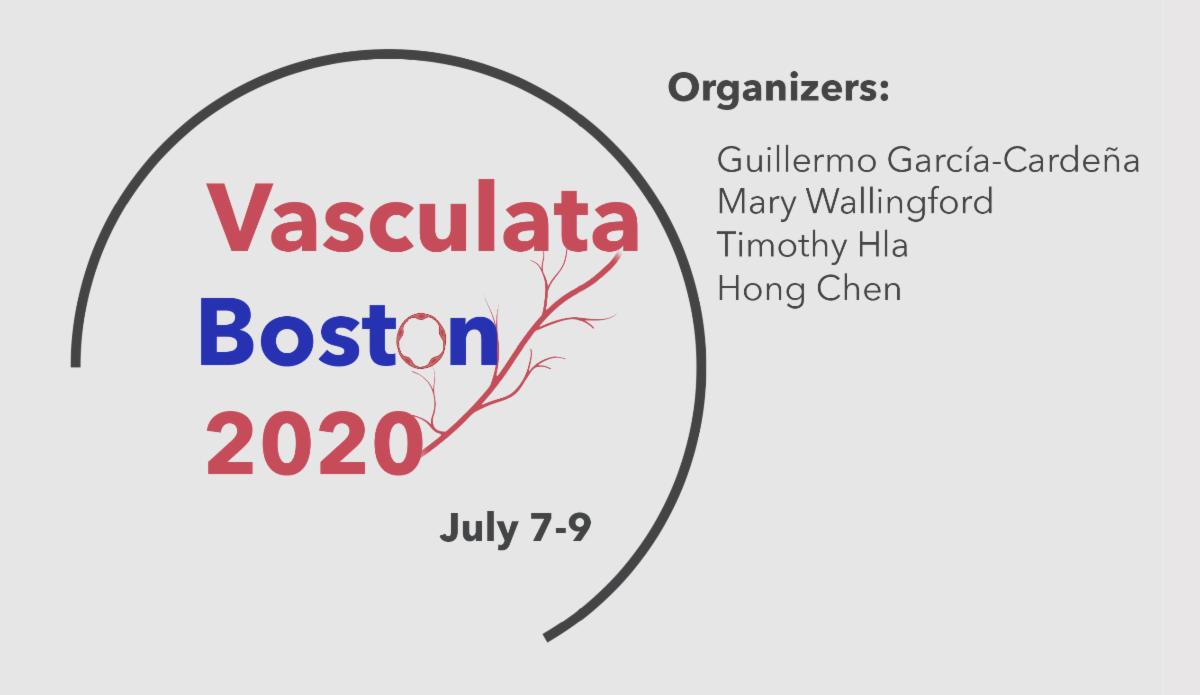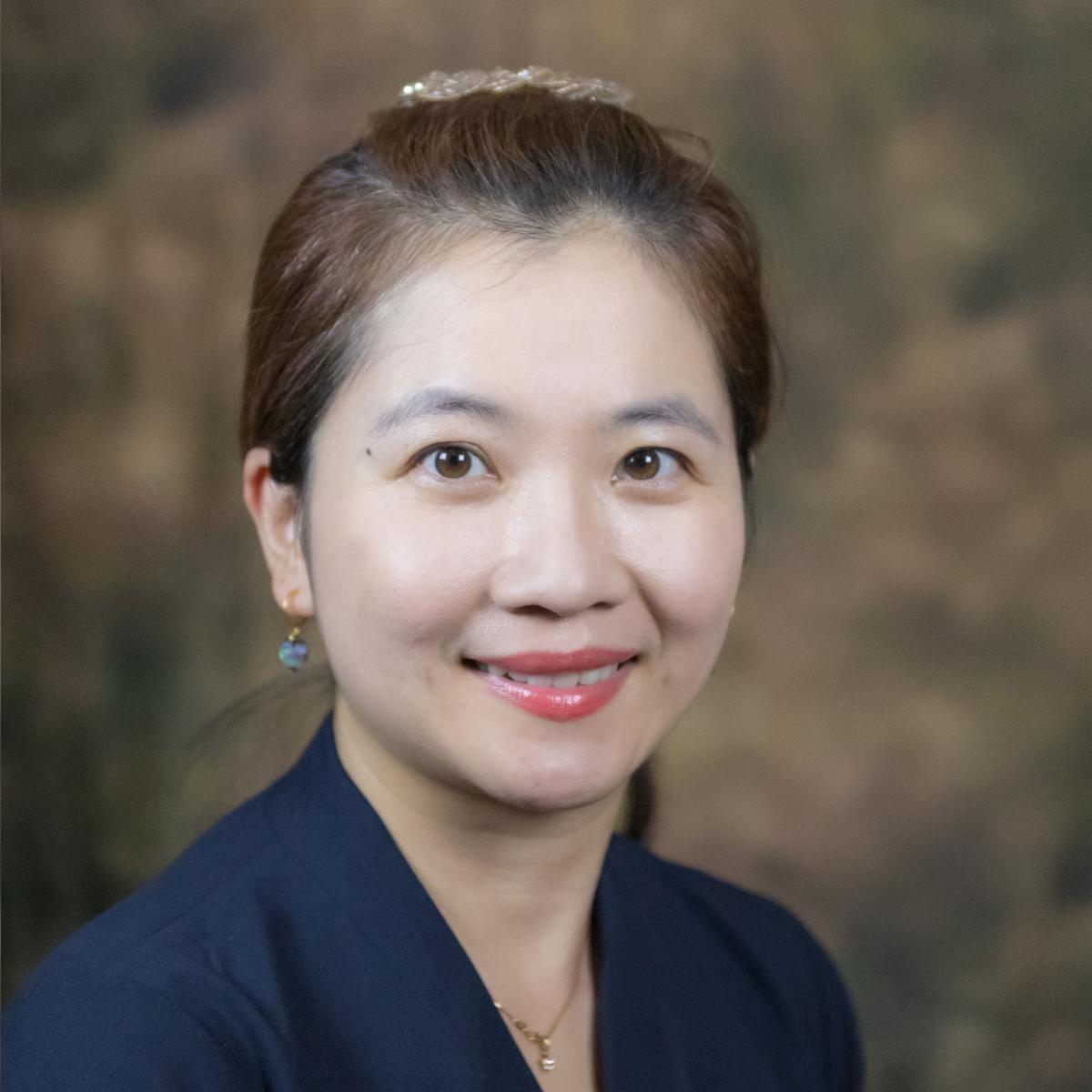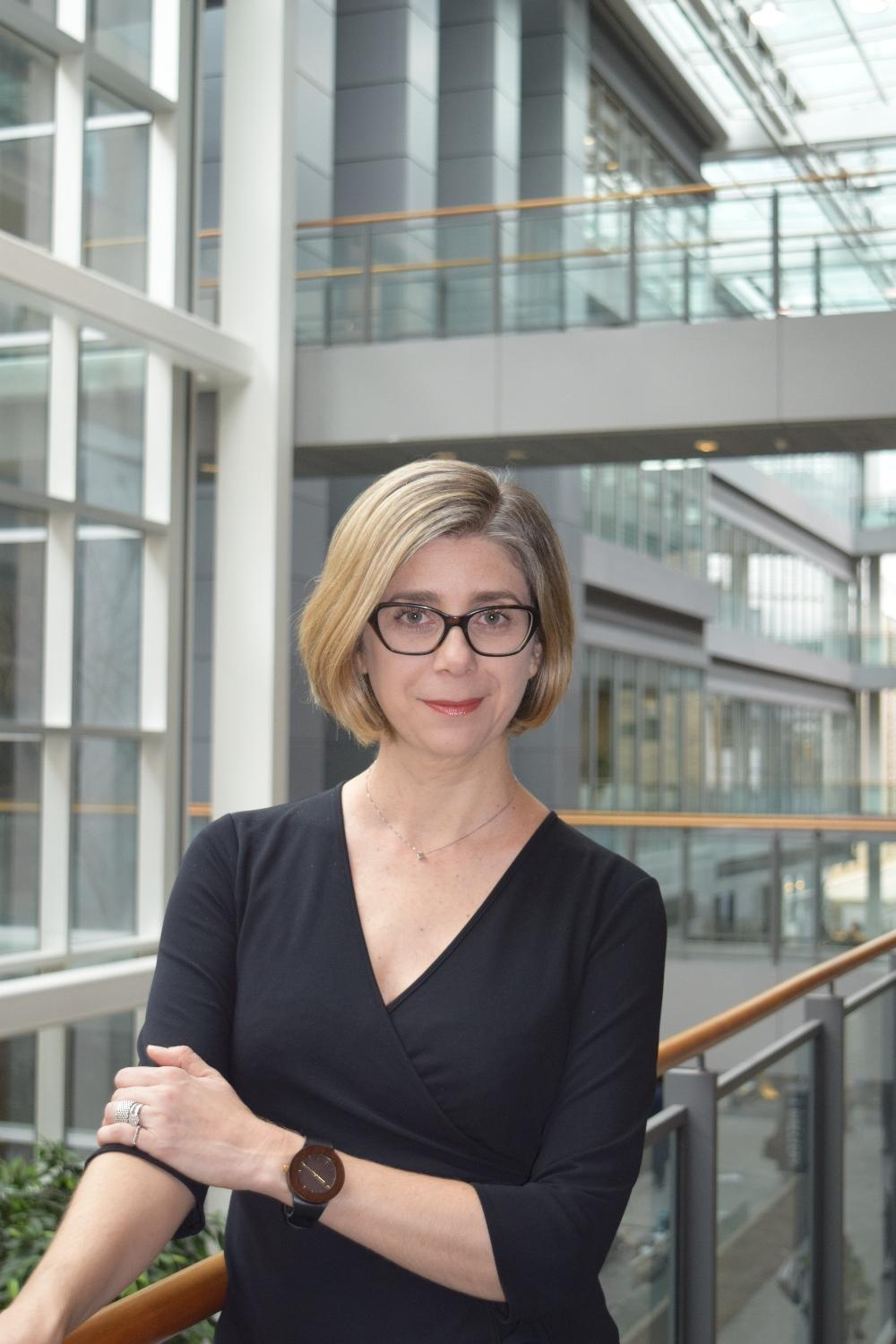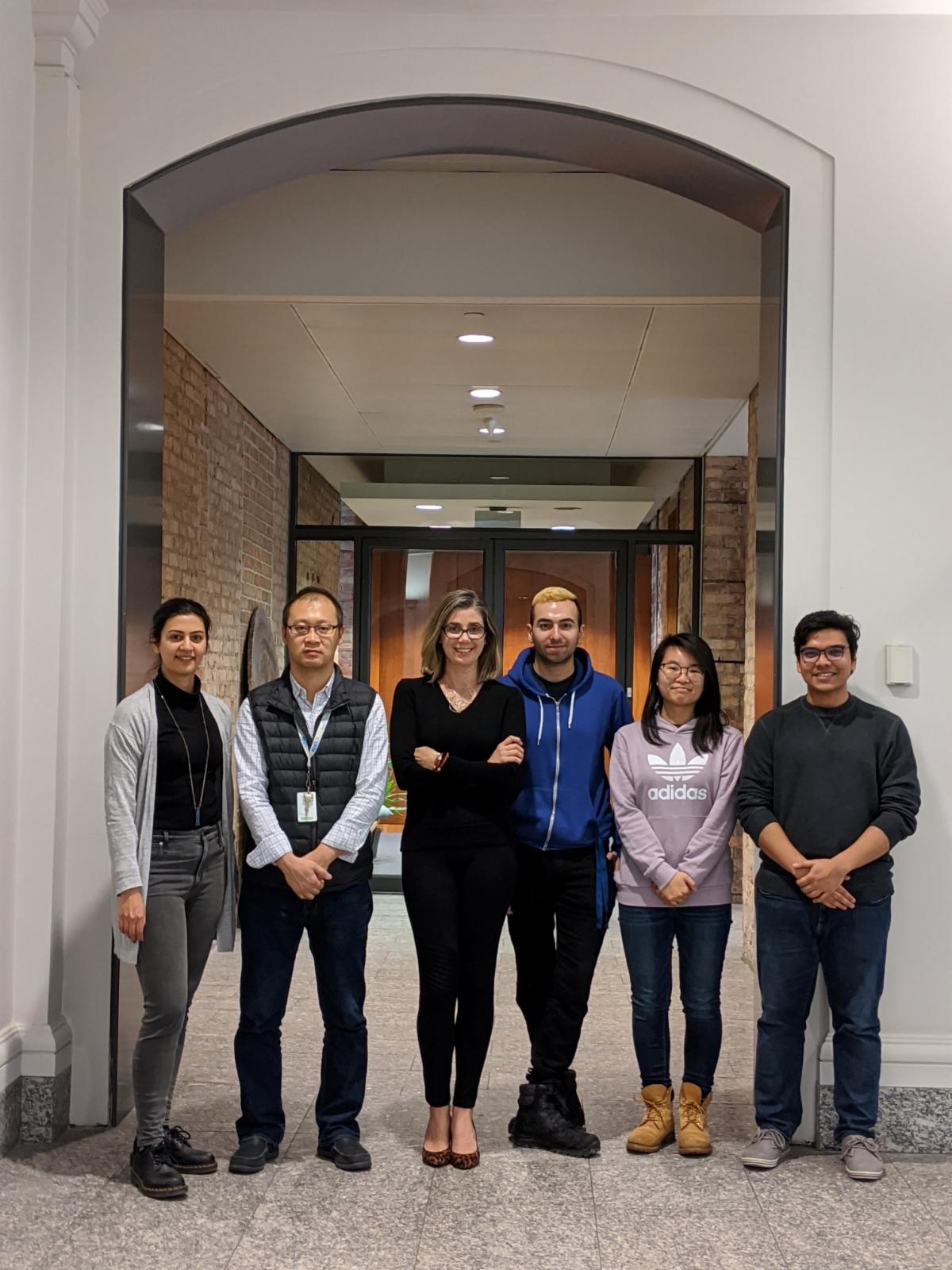|
William R. Huckle, Editor
|
September 9-12, 2020
Abstracts due Feb 29, 2020
|

Boston, MA
July 7-9, 2020
|
Vascular Biology 2020
Newport, RI
October 25-29, 2020
|
Shop at Amazon?
Help Support NAVBO
|
|
Partner Network Advantage on the NAVBO Job Board
|

Why post your job on NAVBO's career center rather than going directly to the larger job networks?
Pricing on the mass job boards can vary, but to get a job noticed you typically have to sponsor it for $5 - $10 per day, which can add up quickly especially since you also pay for each click the job gets. When you add it all together, you could be spending up to $45 per day on your job posting. But, when posting a job on NAVBO's career center, you simply pay a flat fee! The Premium package includes our Exclusive Extended Partner Network - which means the jobs are broadcast to sites like ZipRecruiter and Jobs2Careers and more for a flat fee.
With special member pricing, you can post a job for as low as $300 with this Partner Network. You never pay for each click, just the flat fee on the NAVBO career center. In addition, the Premium package includes a 60-day job posting making it a great value. The Premium packages also offer features like having your company's logo featured on the career center homepage, having your job appear first in search results, and more.
|
Your data privacy and security are important to NAVBO. To that end, we have updated our privacy policy to reflect recent privacy and security regulation implementations and changes.
Please review our policy as time permits so you have a complete understanding of the data we have, why we have it, and how we use it.
Part of the updates relate directly to the European Union's new General Data Protection Regulation (GDPR) that went into place May 25. The GDPR seeks to improve the transparency of data usage and give end users more control over their own data. We believe these changes are important and will be compliant with the GDPR regulations.
Contact NAVBO if you have any questions or to
change your communication preferences.
Please note, you can unsubscribe to this newsletter at anytime by clicking on the SafeUnsubscribe in the footer.
|
|
 |
|
|
Vasculata 2021 at Your Institution!
|
Host Vasculata 2021 at Your Instituion
NAVBO continues to bring vascular biology to an ever growing audience by offering Vasculata at various institutions.
Vasculata, NAVBO's 3-4 day summer course, provides an overview of and an introduction to the basics of vascular biology as well as discussing new trends on the horizon.
Vasculata gives students and other trainees the opportunity to network with peers and faculty in an informal and intimate setting. It fosters mentorships and collaborations. Career development sessions as well as hands-on workshops in new technologies are frequently offered. This course is affordable for trainees and scholarships are available for those without sufficient funding.
Please consider hosting Vasculata, it is an ideal way to showcase your institution as well as giving trainees the broader scope of the field of vascular biology.
Proposals are due February 28, 2020
Please note: although we will welcome proposals from any location, we would like to encourage those on the west coast to apply. Vasculatas 2017-2019 were in the mid-west; Vasculata 2020 will be in Boston.
|
|
Round Three! Meet NAVBO Trainees
|
The Microcirculatory Society Annual Meeting
If you submitted an abstract to the Microcirculatory Society and are a current trainee member of NAVBO, you are eligible for a Travel Award to the MCS Annual Meeting at Experimental Biology 2020.
Click here for information about the meeting.
International Vascular Biology Meeting 2020
|
|
NEW: Online Mini-Symposia
|
Did you present a poster at Vascular Biology 2019?
We are creating a series of online mini-symposia featuring short talks by VB2019 poster presenters.
We hope to present our first session in February, look for more details in upcoming Newsletters.
|
Online Journal Club - January 16
|
Journal Club to Discuss New Paper by Ralf Adams, et.al.
Our third Journal Club will take place on January 16 at 1:00pm EST. We will be discussing the following paper:
Chen Q, Liu Y, Jeong HW, Stehling M, Dinh VV, Zhou B, Adams RH.
Cell Stem Cell. 2019 Dec 5;25(6):768-783.e6.
doi: 10.1016/j.stem.2019.10.006. Epub 2019 Nov 21. PMID: 31761723
Mary Jo Mulligan-Kehoe will lead the discussion with a 30 minute presentation followed by 30 minutes of discussion.
The NAVBO Forum can be used to post questions prior to the presentation on Jan 16 and also to pose questions after the presentation in order to keep the conversation going. Consider joining!
|
|
Great Webinars in Store for 2020
|

Mark Your Calendar
Our first webinar in 2020 will feature
Mark Kahn, University of Pennsylvania, and his talk on
"The Gut-Brain Axis in Cerebral Cavernous Malformation."
Plan to join us on January 23 at 1:00pm EST.
 Our February 13 webinar will feature Ke Yuan Our February 13 webinar will feature Ke Yuan, Boston Children's Hospital, and her presentation titled, "
Mural Cell SDF1 Signaling Is Associated with The Pathogenesis of Pulmonary Arterial Hypertension
Please join us.
Click here for more information and to register for the webinar.
In March, we will host a webinar with
Brant Weinstein, NICHD/NIH titled, "
New Insights into Lymphatics and Lymphatic-related Cells from the Zebrafish" and in April,
Courtney Griffin, Oklahoma Medical Research Foundation, will give her presentation:
What Chromatin Remodelers Can Teach Us About Vascular Development and Integrity.
Join us!! NAVBO Webinars are free to current NAVBO Members. Non-members can attend for $25 per webinar.
And don't forget you can watch archived webinars as well - go to
|
Scholarship applications to winter/spring Keystone Symposia due soon!
Keystone Symposia meetings cover the latest scientific advances and applications, spanning molecular mechanisms to clinical and global impacts. Attendance by students & post-doctoral fellows can provide unique networking and career-development opportunities, inspiring research and identifying new collaborations and job prospects. Symposia organizers are presently in the midst of
scholarship application season ahead of the conferences planned for winter and spring 2020. Several upcoming symposia are of potential interest to vascular biologists, including Inflammation, Microbiota and Cancer (scholarship applications due January 16, 2020), Mitochondrial Biochemistry in Health and Disease (January 21), Adaptive ROS Signaling in Physiology and Disease (January 21), and Maternal-Fetal Crosstalk (February 6).
|
Endothelial Colony-Forming Cells
David Smadja and Juan Melero-Martin are co-chairs of a committee on vascular biology (endothelial progenitor cells) at the International Society of Thrombosis and Hemostasis (ISTH), Scientific and Standardization Committee (SSC).
During one of the annual ISTH SSC meeting in Berlin, two years ago, a round table brought together international specialists from several groups and addressed questions regarding endothelial colony-forming cells (ECFCs). As a result, a position paper was written. Despite that effort, however, many more questions remained unanswered regarding the best methodologies for the use of ECFCs.
The group is now trying to collect as much information as possible from laboratories that routinely work with ECFCs. Their goal is to identify and recommend standardized methods that are useful for the vascular biology community.
To this end, a Google survey was created for those groups that routinely use human ECFCs. If this applies to you/your lab, please kindly complete the survey (it should take about 10 minutes to complete).
The outcome of this survey will be reported to the SSC on Vascular Biology at the 2020 ISTH meeting in Milan, and the results will be submitted for publication to the Journal of Thrombosis and Haemostasis.
Your input is appreciated.
|
Sara Nunes Vasconcelos
My
 name is Sara Nunes Vasconcelos and I have been an Assistant Professor at the University of Toronto since 2014 and a Scientist at the Toronto General Hospital Research Institute since 2012. It has been an amazing journey and I have learned a lot.
name is Sara Nunes Vasconcelos and I have been an Assistant Professor at the University of Toronto since 2014 and a Scientist at the Toronto General Hospital Research Institute since 2012. It has been an amazing journey and I have learned a lot.
In reading the Lessons learned from other PI's I found that a number of 'lessons' really resonated with me, like the value of choosing the right place, seeking out mentoring, making time to write, and finding out which resources are available at your institution, etc. I'd like to add a few things that I learned that may be of value to others as well.
Seek advice but only follow what makes sense to you. When I first started and shared my grant with more seasoned PIs who also sat on committee meeting panels (known as study section in the US) I was taken aback by the somewhat contradictory feedback I received. It was very confusing! When I expressed this to my colleague (and fellow NAVBO member) Myron Cybulsky I heard: "Sara, there are many ways to skin a cat, you have to find out what works for you." And I have been following that advice ever since - thanks, Myron! This is true not just for grants, but for hiring, presenting, teaching, etc. Just because someone has been doing something successfully for a long time does not mean that the same approach will necessarily work for you. In other words, there are no formulas!
Celebrate every achievement. This job can be challenging and is replete with rejections (grants, manuscripts, awards). Do not let these obscure your view of the big picture! I find it helps to celebrate every accomplishment, especially those of your trainees.
Expand your reach.
I realized I was often limited in my day-to-day interactions in terms of the people that I sought feedback from and that this gave me a limited (and perhaps field-specific) perspective on things. So, recently I decided to join Twitter. I was initially skeptical but decided to give it a try anyway. I have met so many researchers from different countries and also from Toronto because of Twitter. I have also engaged in advocacy related to the state of research in Canada and I feel that I am a more integrated part of the community now. Yes, you can interact with a lot of people at scientific meetings and other venues but I found social media (Twitter, Slack) let you have those interactions every day without having to go anywhere. Because of my social media presence, I have also been able to contribute to the communications committees of different Society's - including that of NAVBO.
Find out what the metrics for success are for your institution but do not allow yourself to be limited by them.
Yes, we all aim to get grants, mentor, publish high impact papers, serve on grant review panels, become recognized by our peers, and receive awards... But is there anything else that matters to you? I found that I am also passionate about supporting underrepresented groups in science. So, I have dedicated more of my time to accomplishing this - by joining Women Leadership committees and mentoring at-risk girls that show interest in science - instead of saying yes to another type of committee that does not appeal as much to me. I have also tried to come up with other small ways that I could contribute, such as agreeing to have high school placements in my lab on the condition that the student is part of a minority group. We have a limited amount of time, we might as well prioritize what we are passionate about.
Ask.
I loved Cynthia St. Hilaire's advice about saying YES to things. I would add that you should not only say YES but also volunteer your time. Ask to be involved in anything that is important to you and that you feel you could add value to, such as organizing a conference, creating a workshop on a topic that is important to you or chairing a session at a meeting you are going to anyway, etc. Most often than not there are too many things to be done and very few people willing to help and those are great opportunities to meet new people, bring a fresh perspective and change the way that things are done.
You can view all of the Lessons Learned by visiting our web site. Go to
|
The Lab of Dr. Sara Nunes Vasconcelos
 This month we are highlighting the lab of Dr. Sarah Nunes Vasconcerlos, who is a Scientist at Toronto General Research Institute and University of Toronto. Find out more about Dr. Nunes Vasconcelos' lab at
http://www.navbo.org/membership/members-labs/853-lab012020.
|
|
Special Issue on Vascular Signaling
|
Special Issue of Cell MDPI focusing on Vascular Signalling
Drs. Silvia Dragoni and Patric Turowski, NAVBO Member, are the guest editors, and invite you to submit a contribution for this special issue. Submissions
may be either a full paper or a communication based on research in any area of vascular biology, or it may be a focused review article.
Submissions are due March 30, 2020
Highlights:
- MDPI Cells is an open access journal with a current IF of 5.7
- Articles will be published immediately after acceptance
- Colleagues may be eligible for discounted publication charges (limited availability on a first come first serve basis; please send an email to Dr. Turowski)
More information is available here:
If you plan to submit a review article please provide either editor or Janet Yan at the editorial office (janet.yan@mdpi.com) with a title and brief description at your earliest convenience, in order to avoid multiple reviews covering the same material.
The editors wish to be notified if you plan to submit a paper.
Patric Turowski -
p.turowski@ucl.ac.uk
Silvia Dragoni - s.dragoni@ucl.ac.uk
|
|
Promote Your Presentation on the Web Site
|
Current NAVBO Members Can List Their Upcoming Presentations (Oral or Poster) on our Web Site
Keep members, and all who visit our web site, aware of presentations by NAVBO members. If you are attending the meeting, be sure to attend your NAVBO colleague's presentation. If you are also presenting at that meeting, you can attend each other's presentations and offer mutual support! It can also help make you aware when a colleague is in your town so you reach out and arrange an in-person chat. And finally, this listing can also keep you abreast of other relevant meetings and conferences.
There is a form at the bottom of the page for you to add your presentation.
|
Welcome to our New Members:
Gamze Bulut, University of Virginia
Jaehyung Cho, University of Illinois at Chicago
Ramiro Malgor, Ohio University
|
|
Recent Publications by NAVBO Members
|
| The potassium channel Kcne3 is a VEGFA-inducible gene selectively expressed by vascular endothelial tip cells
Angiogenesis
Angiogenesis is largely driven by motile endothelial tip-cells capable of invading avascular tissue domains and enabling new vessel formation. Highly responsive to Vascular Endothelial Growth-Factor-A (VEGFA), endothelial tip-cells also suppress angiogenic sprouting in adjacent stalk cells, and thus have been a primary therapeutic focus in addressing neovascular pathologies.
Read more
Hyperglycemia-induced transcriptional regulation of ROCK1 and TGM2 expression is involved in small artery remodeling in obese diabetic Göttingen Minipigs
Clinical Science
Obesity and diabetes in humans are associated with hypertrophic remodeling and increased media:lumen ratio of small resistance arteries, which is an independent predictor of cardiovascular events. In order to minimize increases in media:lumen ratio, hypertrophic remodeling should be accompanied by outward remodeling. Read more RELMα Licenses Macrophages for Damage-Associated Molecular Pattern Activation to Instigate Pulmonary Vascular Remodeling
Journal of Immunology
Pulmonary hypertension (PH) is a debilitating disease characterized by remodeling of the lung vasculature. In rodents, resistin-like molecule-a (RELMα, also known as HIMF or FIZZ1) can induce PH, but the signaling mechanisms are still unclear. Read more HIMF (Hypoxia-Induced Mitogenic Factor) Signaling Mediates the HMGB1 (High Mobility Group Box 1)-Dependent Endothelial and Smooth Muscle Cell Crosstalk in Pulmonary Hypertension
Arteriosclerosis, Thrombosis, and Vascular Biology
HIMF (hypoxia-induced mitogenic factor; also known as FIZZ1 [found in inflammatory zone-1] or RELM [resistin-like molecule-α]) is an etiological factor of pulmonary hypertension (PH) in rodents, but its underlying mechanism is unclear. Read more PERK inhibition mitigates restenosis and thrombosis - a potential low thrombogenic anti-restenotic paradigm
Journal American College of Cardiology Basic to Translational Science
Background: Drug-eluting stents (DES) represent the main-stream management of restenosis following treatments of occlusive cardiovascular diseases. However, DES cannot eliminate instent restenosis yet exacerbate thrombogenic risks. Read more Congenital Fibular Dystrophisms Conform to Embryonic Arterial Dysgenesis
Anatomical Record (Hoboken)
The congenital short limb (CSL) with fibular deficiency has traditionally been graded by plain radiography. The most popular orthopedic classification sorts the fibular dysmorphologies into three radiographic groupings: IA (thinned), IB (proximally truncated) or II (absent). Read more |
JAMA calls attention to unmet needs in Familial Hypercholesterolemia
The International Atherosclerosis Society, together with the Familial Hypercholesterolemia Foundation and the World Heart Federation, has announced the publication of a 'Global Call to Action' on FH in JAMA Cardiology. FH is a vastly under-recognized and poorly managed public health concern, globally affecting 1 of 200-250 people of every race and ethnicity. Currently, only about 10% of the FH population are being diagnosed and adequately treated. The JAMA publication is authored by an international panel of scientific experts, public health officials, and patient advocates from 40 countries and notes glaring gaps in screening and guideline-based care for FH, the most common cause of early and aggressive heart disease.
FY2020 Federal budget, kind to NIH and NSF, signed at year's end
On December 20, 2019 - nearly three months into FY202 - President Trump signed off on close to $1.4 trillion in spending that will keep the government funded through September, averting a shutdown ahead of what's expected to be a lively election season. Most
US research agencies received healthy increases for 2020, with the NIH receiving a 7% boost ($2.6 billion) to $41.7 billion and the NSF being given an additional $203 million (2.5%), lifting its budget to $8.28 billion. The spending measures avoid a repeat of last year's end-of- year impasse that led to a 35-day partial government shutdown, forcing thousands of government workers into furlough or working without pay.
International commission addresses oversight of human genome editing
Just over a year since Chinese scientist He Jiankui announced the birth of twins whose healthy embryonic genomes had been edited, drawing condemnation and alarm from the international scientific community, an international collaborative of scientific and medical academies have formed the
International Commission on the Clinical Use of Human Germline Genome Editing. The group has been tasked with developing a framework that will identify a number of technical, scientific, medical, and ethical requirements that should be considered by researchers and policymakers for any potential clinical application of heritable human genome editing. The commission, in tandem with a WHO expert committee, is expected to release a report in late spring of 2020 to help inform the development of sound regulation and oversight around germline editing.
|
January 14, 2020
|
NIH/NHLBI "Our Hearts" Webinar |
Feb. 7 - 8, 2020
|
11th Charleston Symposium on Vascular Anomalies |
Feb. 16 - 19, 2020
|
Cerebral Fluid Flow and Function: Lymphatics, Glymphatics and the Choroid Plexus |
March 4 - 5, 2020
|
International Conference on Neurology and Neuroscience |
April 1 - 3, 2020
|
EMBO Workshop - Cell Signalling and Biology of Vascular Malformations |
April 4 - 6, 2020
|
The Microcirculatory Annual Meeting at Experimental Biology 2020 |
April 4 - 7, 2020
|
Experimental Biology 2020 |
July 7 - 9, 2020
|
Vasculata 2020 |
July 11 - 15, 2020
|
ISTH 2020 Congress |
Sept. 9 - 12, 2020
|
21st International Vascular Biology Meeting (IVBM 2020) |
Oct. 25 - 29, 2020
|
Vascular Biology 2020 |
|
|
|